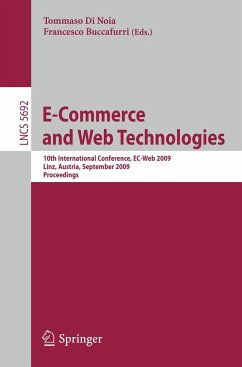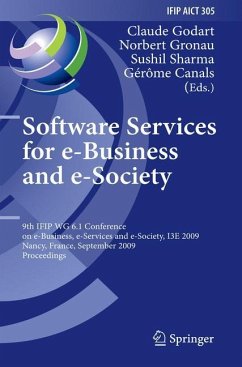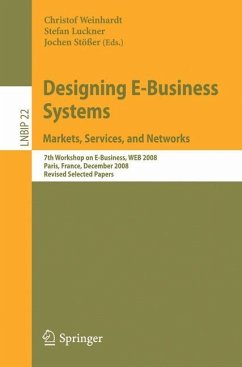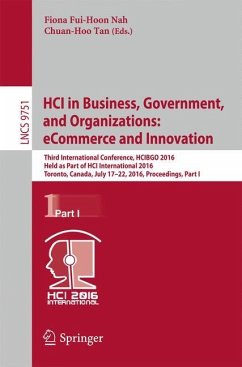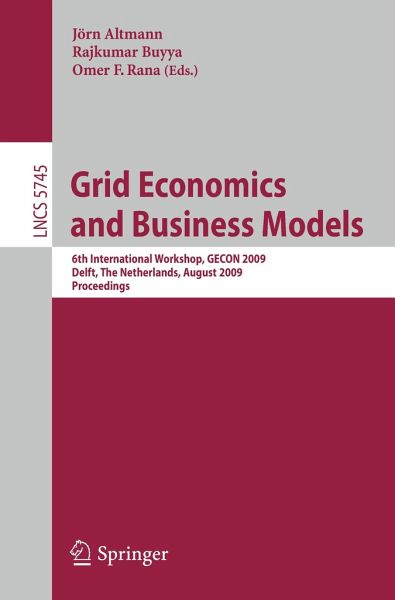
Grid Economics and Business Models
6th International Workshop, GECON 2009, Delft, The Netherlands, August 24, 2009, Proceedings
Herausgegeben: Buyya, Rajkumar; Rana, Omer F.

PAYBACK Punkte
0 °P sammeln!
GECON - Grid Economics and Business Models Cloud computing is seen by many people as the natural evolution of Grid computing concepts. Both, for instance, rely on the use of service-based approaches for pro- sioning compute and data resources. The importance of understanding business m- els and the economics of distributed computing systems and services has generally remained unchanged in the move to Cloud computing. This understanding is nec- sary in order to build sustainable e-infrastructure and businesses around this paradigm of sharing Cloud services. Currently, only a handful of companie...
GECON - Grid Economics and Business Models Cloud computing is seen by many people as the natural evolution of Grid computing concepts. Both, for instance, rely on the use of service-based approaches for pro- sioning compute and data resources. The importance of understanding business m- els and the economics of distributed computing systems and services has generally remained unchanged in the move to Cloud computing. This understanding is nec- sary in order to build sustainable e-infrastructure and businesses around this paradigm of sharing Cloud services. Currently, only a handful of companies have created s- cessful businesses around Cloud services. Among these, Amazon and Salesforce (with their offerings of Elastic Compute Cloud and force. com among other offerings) are the most prominent. Both companies understand how to charge for their services and how to enable commercial transactions on them. However, whether a wide-spread adoption of Cloud services will occur has to seen. One key enabler remains the ability to support suitable business models and charging schemes that appeal to users o- sourcing (part of) their internal business functions. The topics that have been addressed by the authors of accepted papers reflect the above-described situation and the need for a better understanding of Grid economics. The topics range from market mechanisms for trading computing resources, capacity planning, tools for modeling economic aspects of service-oriented systems, archit- tures for handling service level agreements, to models for economically efficient resource allocation.





